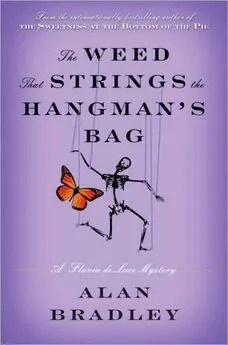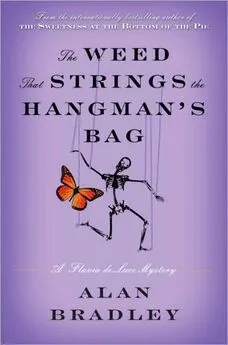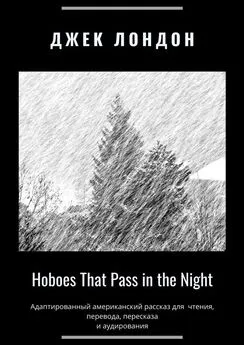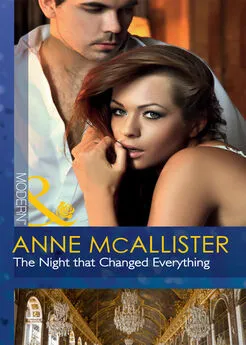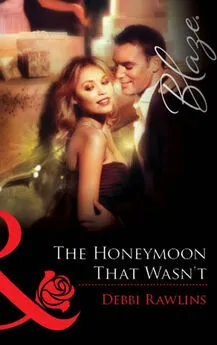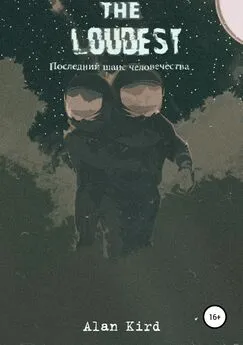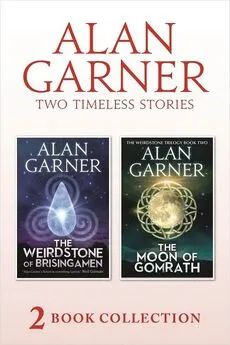Alan Bradley - The Weed That Strings the Hangmans Bag
- Название:The Weed That Strings the Hangmans Bag
- Автор:
- Жанр:
- Издательство:неизвестно
- Год:неизвестен
- ISBN:нет данных
- Рейтинг:
- Избранное:Добавить в избранное
-
Отзывы:
-
Ваша оценка:
Alan Bradley - The Weed That Strings the Hangmans Bag краткое содержание
The Weed That Strings the Hangmans Bag - читать онлайн бесплатно полную версию (весь текст целиком)
Интервал:
Закладка:
She was stretched full length in a chair by the window, her heels on the tiles, fanning herself with a small frying pan.
I did as I was bidden, and she gulped down the drink in a flash.
"What is it, Mrs. M?" I asked. "What's happened?"
"The police, dearie. They gave me such a turn, comin' for that young woman like they did."
"What young woman? You mean Nialla?"
She nodded glumly, waggling her empty glass. I refilled it.
"Such a dear, she is. Never done nobody no harm. She rapped at the kitchen door to thank me, and Alf, of course, for puttin' her up the night. Said she was movin' on--didn't want us to think she was ungrateful, like. No more the words were out of her mouth than that there Inspector whatsis--"
"Hewitt," I said.
"Hewitt. That's 'im--that's the one ... 'E shows up in the doorway right behind 'er. Spotted 'er comin' across from the coach house, 'e did."
"And then?"
"'E asked if 'e might have a word outside. Next thing I knows, poor girl's off in the car with 'im. I 'ad to run round the front to get a good look. Proper fagged me out, so it did."
I refilled her glass.
"I shouldn't ought to, dearie," she said, "but my poor old heart's not up to such a muddlederumpus."
"You're looking better already, Mrs. M," I told her. "Is there anything I can do to help?"
"I was just about to put them things in the oven," she said, pointing to an array of dough-filled pans on the table, and heaving herself to her feet. "Open the oven door for me--that's a good girl."
Much of my life was given over to holding the oven door of the Aga as Mrs. M fed heaps of baking into its open maw. Hell, in Milton's Paradise Lost , had nothing to compare with my drudgery.
"Clean out of pastries, we were," she said. "When it comes to dainties, that young man of Miss Ophelia's seems to have a bottomless stomach."
Miss Ophelia's young man? Had it come to that already? Had my rambles round the village caused me to miss some sensational scene of courtship?
"Dieter?" I asked.
"Even if 'e is a German," she said with a nod, "'e's ever so much more refined than that rooster as keeps leavin' 'is rubbishy gifts on the kitchen doorstep."
Poor Ned! I thought. Even Mrs. Mullet was against him.
"I just 'appened to overhear a bit of what 'e said while I was dustin' the hall--about 'Eathcliff, an' all that. I mind the time me and my friend, Mrs. Waller, took the bus over to Hinley to see 'im in the cinema. Wuthering Heights , it was called, and a good name for it, too! That there 'Eathcliff, why, 'e kept 'is wife 'id up in the attic as if she was an old dresser! No wonder she went barmy. I know I should 'ave! Now then, what you laughin' at, miss?"
"At the idea," I said, "of Dieter mucking across Jubilee Field through rain and lightning to carry off the Fair Ophelia."
"Well, 'e might do," she said, "but not without a right fuss from Sally Straw--and, some say, the old missus herself."
"The old missus? Grace Ingleby? Surely you don't mean Grace Ingleby?"
Mrs. Mullet had suddenly gone as red as a pot of boiling beets.
"I've said too much," she said, flustered. "It's the sherry, you see. Alf always says as 'ow sherry coshes the guard what's supposed to be keepin' watch on my tongue. Now then, not another word. Off you go, dearie. And mind you--I've said nothing."
Well! I thought. Well, well, well, well, well!
* TWENTY-THREE *
THERE'S SOMETHING ABOUT pottering with poisons that clarifies the mind. When the slightest slip of the hand could prove fatal, one's attention is forced to focus like a burning-glass upon the experiment, and it is then that the answers to half-formed questions so often come swarming to mind as readily as bees coming home to the hive.
With a good dollop of sulfuric acid already decanted into a freshly washed flask and warmed slightly, I gingerly added a glob of crystalline jelly, and watched in awe as it slowly dissolved, quivering and squirming in the acid bath like a translucent squidling.
I had extracted the stuff, with water and alcohol, from the roots of a Carolina jessamine plant (Gelsemium sempervirens) that, to my delight, I had discovered blooming blissfully away in the corner of the greenhouse, its flowers like little trumpets sculpted from fresh butter.
The plant was native to the Americas, Dogger had told me, but had been brought home to English greenhouses by travelers; this particular specimen by my mother, Harriet.
I had asked if I could have it for my laboratory, and Dogger had readily agreed.
The root contained a lovely alkaloid called gelsemine, which had lurked undetected inside the plant since the Creation, until it was teased out in 1870 by a man from Philadelphia with the charming name of Wormley, who administered the bitter poison to a rabbit, which turned a complete backwards somersault and perished in twenty minutes.
Gelsemine was a killer whose company I much enjoyed.
And now came the magic!
Into the liquid I introduced, on the tip of a knife, a small dose of K 2Cr 2O 7, or potassium dichromate, whose red salts, illuminated by a fortuitous beam of sunlight from the casement window, turned it the livid cherry red hue of a carbon monoxide victim's blood.
But this was only the beginning! There was more to come.
Already the cherry brilliance was fading, and the solution was taking on the impressive violet color of an old bruise. I held my breath, and --yes!-- here it was, the final phase of yellow-green.
Gelsemine was one of chemistry's chameleons, shifting color with delicious abandon, and all without a trace of its former hue.
People were like that, too.
Nialla, for instance.
On the one hand, she was captive to a traveling puppeteer; a young woman who, other than the baby she was now carrying, had no family to speak of; a young woman who allowed herself to be beaten by a semi-invalid lover; a young woman now left with no money and no visible means of support. And yet, in rather a complicated way that I did not entirely understand, she did not have my complete sympathy.
Was it because she had run away from the scene of the crime, so to speak, and hidden in the coach house at Buckshaw? I could see her wanting to be alone, but she had hardly chosen the best time to do so.
Where was she now? I wondered. Had Inspector Hewitt arrested her and dragged her to a cell in Hinley?
I wrote Nialla on a scrap of paper.
And then there was Mutt Wilmott: a larger-than-life character, who seemed to have stepped right out of an Orson Welles film. Not to put too fine a point on it: Mutt had arrived, Rupert had died; Mutt had vanished after quarreling with Rupert, and was next seen arranging to have the body in question shipped up to London for a state funeral.
Was Mutt an assassin, hired by the BBC? Had Rupert's set-to with the mysterious Tony pushed "Auntie"--and her Director General--too far? Was Rupert's messy end on the stage of a rustic puppet theater really no more than the conclusion of a bitter contractual dispute?
What about Grace Ingleby? To be honest, the dark little woman gave me the creeps. Her shrine to a dead child in an abandoned birdhouse was enough to spook anyone--and now Mrs. Mullet was hinting that the farmer's wife was more than just a landlady to Dieter.
And Dieter! For all his Nordic godliness and passion for English literature, it seemed that he had conspired with his captors to grow and supply cannabis to what Sally Straw had called "a regular little army of others." Who were they? I wondered.
Rupert, of course, had been chief among them, and had visited the Ingleby farm with the regularity of a tram-car for many years. He had been a ladies' man--there was no doubt about it (Sally again). Of whom had he run afoul? Who wanted him dead badly enough to actually do him in?
As for Sally, both Rupert and Dieter had been keen on her. Had Rupert been shoved off into eternity by a rival in love?
Sally seemed central: She had been at the Ingleby farm for years. It was clear that she had a crush on Dieter, although whether her passions were wholly returned was another matter entirely.
And then there was Gordon Ingleby. Gordon the linen-draped saint who did for those in pain what no doctor was willing to do; Gordon the market gardener; Gordon the father of the dead child in the woods.
To say nothing of Mad Meg, who had been in Gibbet Wood when Robin died, or at least, not long afterwards.
And Cynthia--dear Cynthia Richardson, the vicar's wife, whose only passion was her hatred of sin. The sudden appearance of a pair of promiscuous puppeteers who proposed to put on a show in her husband's parish hall must have seared her soul like the lake of fire in the Book of Revelation.
In spite of all that, Cynthia's soul was no hotbed of Christian charity. What was it Meg had said when I asked about her nap at the vicarage? That Cynthia had taken away her bracelet and then turned her out because she was dirty. No doubt she was referring to Nialla's butterfly compact, but if that were the case, why had I found it tangled in the afghan in the study? Had Cynthia taken the compact from Meg and then, caught in the act by one of the dozens of villagers milling about the vicarage, hidden it away to be retrieved for her own later use?
It seemed unlikely: If there was one sin of which Cynthia Richardson was not guilty, that sin was vanity. Just one look at her was enough to know that makeup had never soiled that pale ferret face; jewelry had never dangled from that scrawny neck or brightened up those matchstick wrists. To put it politely, the woman was as plain as a pudding.
I sharpened my pencil and added six names to my list: Mutt Wilmott, Grace Ingleby, Dieter Schrantz, Sally Straw, Mad Meg (Daffy had once told me that Meg's surname was Grosvenor, but I didn't believe her) ... and Cynthia Richardson .
I drew a line, and below it, printed in capital letters: AFFAIRS----LOOK UP!!!
Although I had a sketchy idea of what went on between two people having an affair, I did not actually know the precise mechanical details. Once, when Father had gone away for several days to a stamp exhibition in Glasgow, Daffy had insisted upon reading Madame Bovary aloud to us at every meal, morning, noon, and night, including tea, and finished on the third day just as Father was walking in the door.
At the time, I had nearly died of boredom, although it has since become one of my favorite books, containing, as it does in its final chapters, what must be the finest and most exciting description of death by arsenic in all of literature. I had particularly relished the way in which the poisoned Emma had "raised herself like a galvanized corpse." But now I realized that I had been so gripped by the excitement of poor Madame Bovary's suicide that I had failed to take in the fine points of her several affairs. All I could remember was that, alone with Rodolphe by the lily pond, surrounded by duckweeds and jumping frogs, Emma Bovary--in tears, hiding her face, and with a long shudder--"gave herself up to him."
Whatever that meant. I would ask Dogger.
"Dogger," I said, when I found him at last, hacking away at the weeds in the kitchen garden with a long-handled hoe, "have you read Madame Bovary ?"
Dogger paused in his work and extracted a handkerchief from the bib pocket of his overalls. He gave his face a thorough mopping before he replied.
"A French novel, is it not?" he asked.
"Flaubert."
"Ah," Dogger said, and shoved the handkerchief back into his pocket. "The one in which a most unhappy person poisons herself with arsenic."
Читать дальшеИнтервал:
Закладка:
